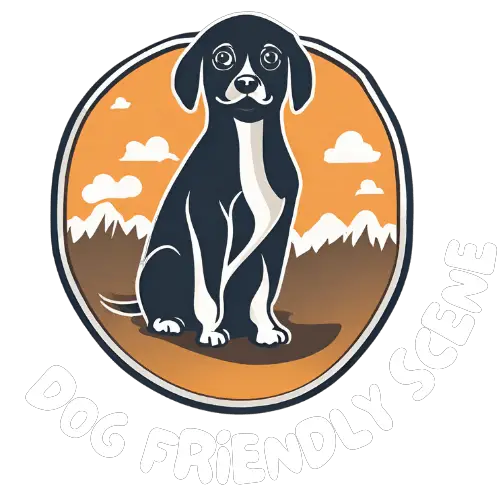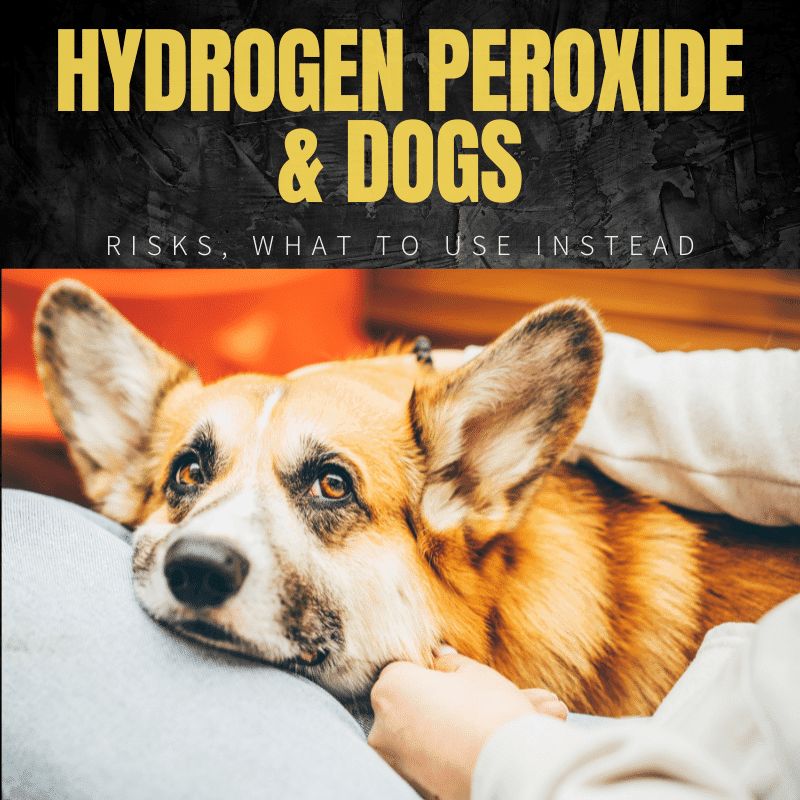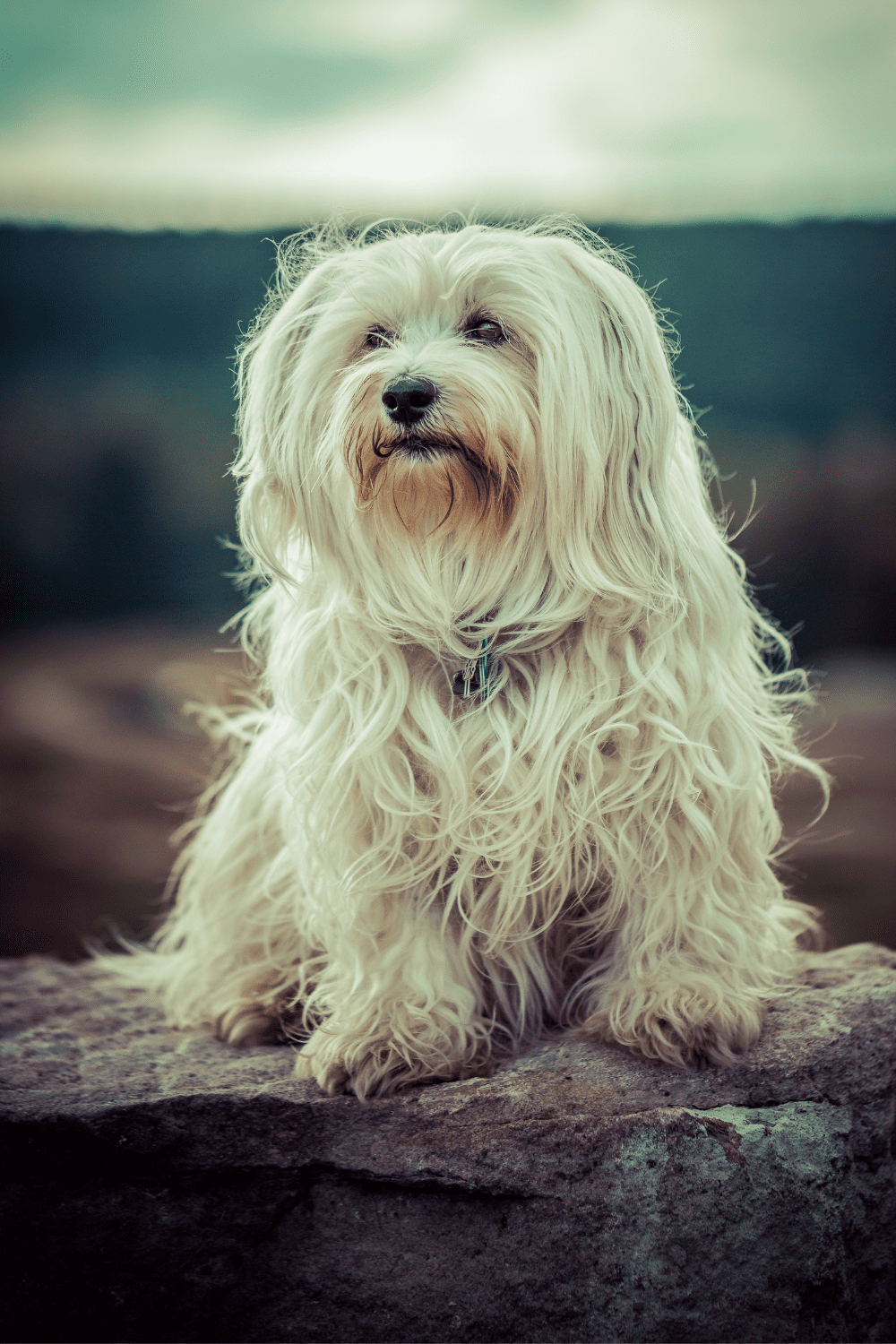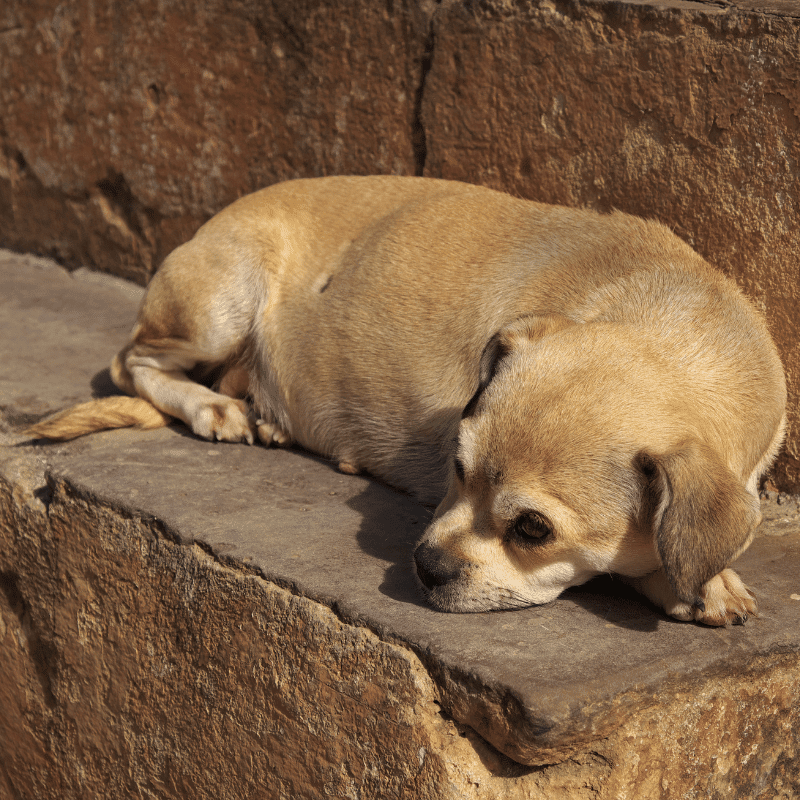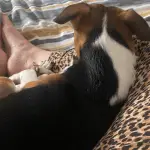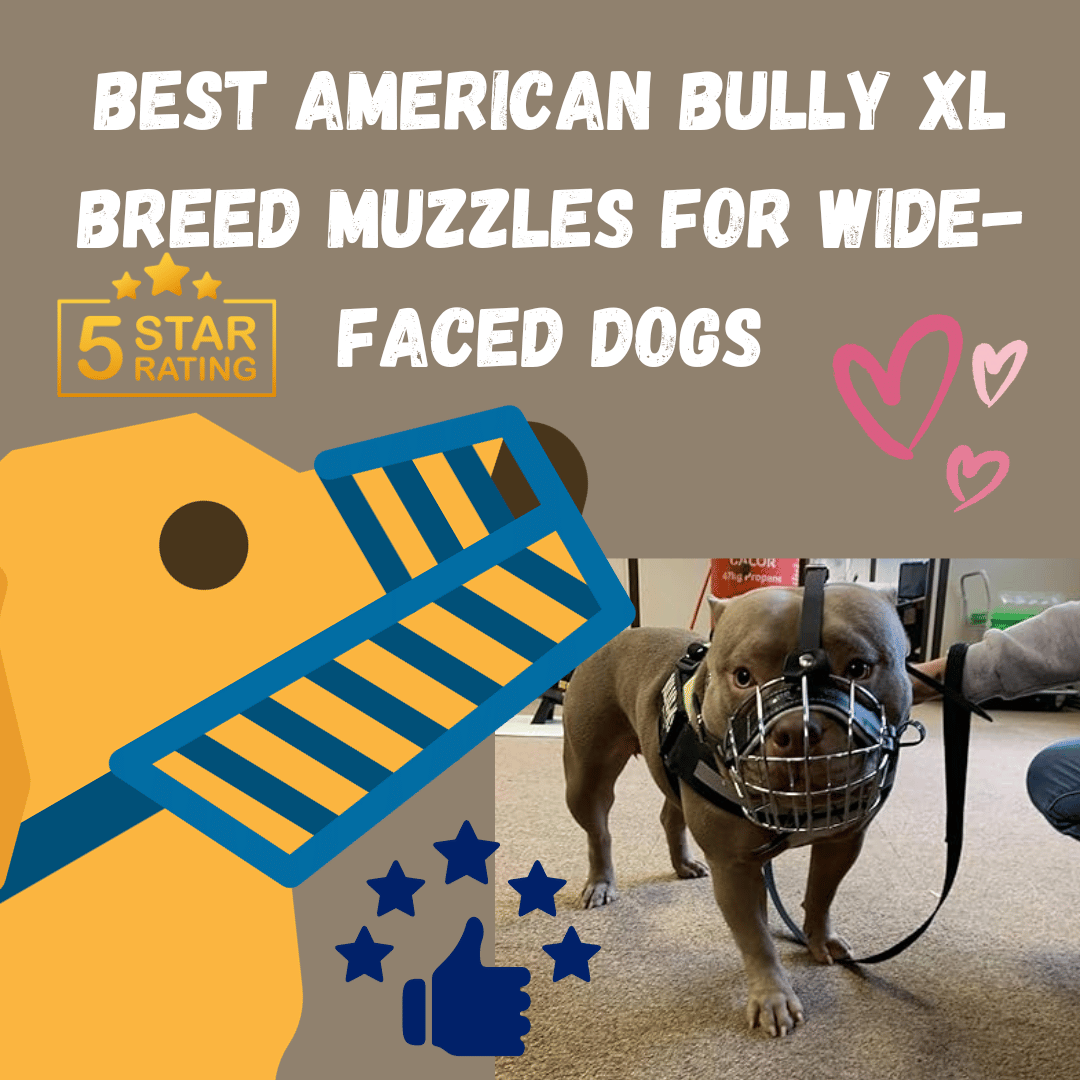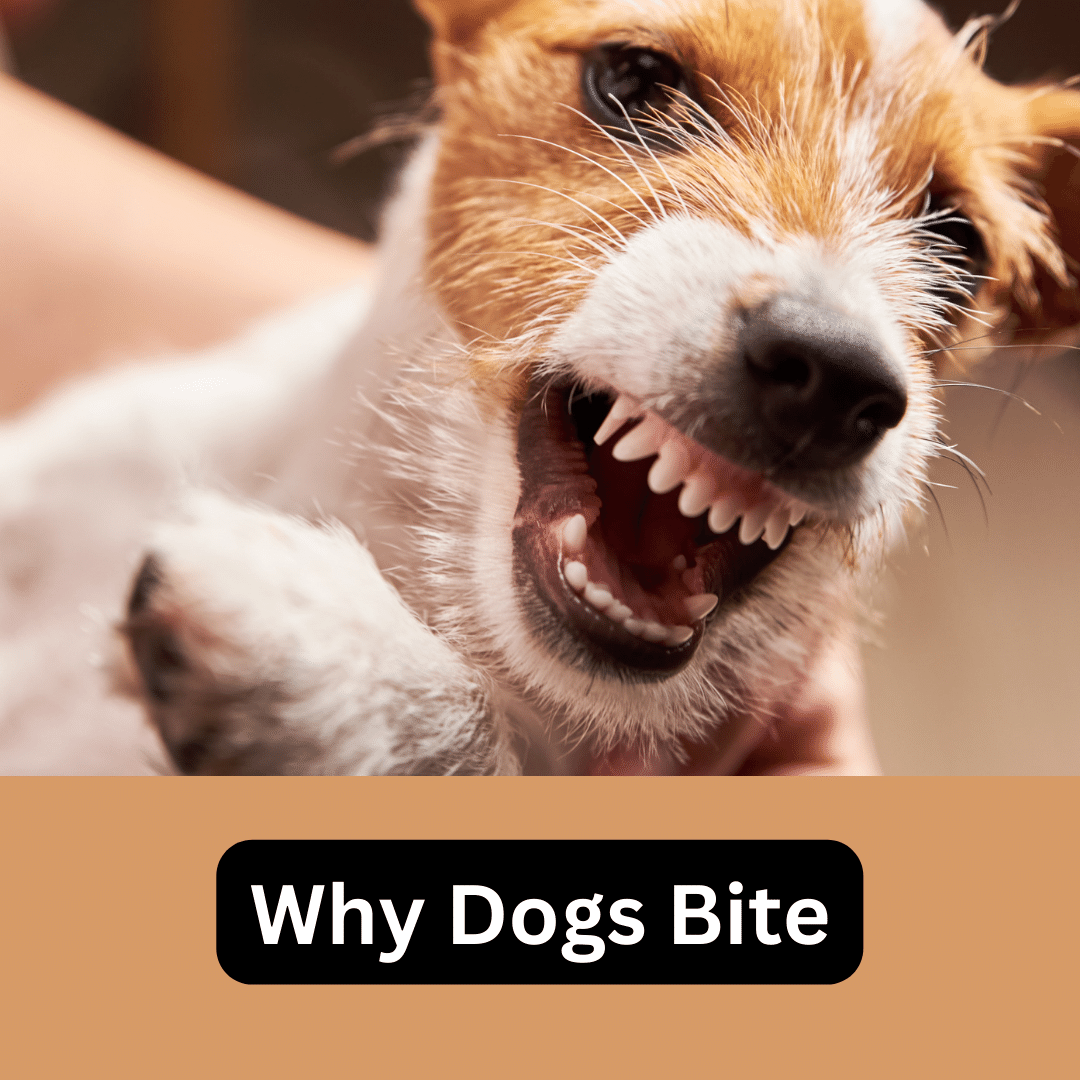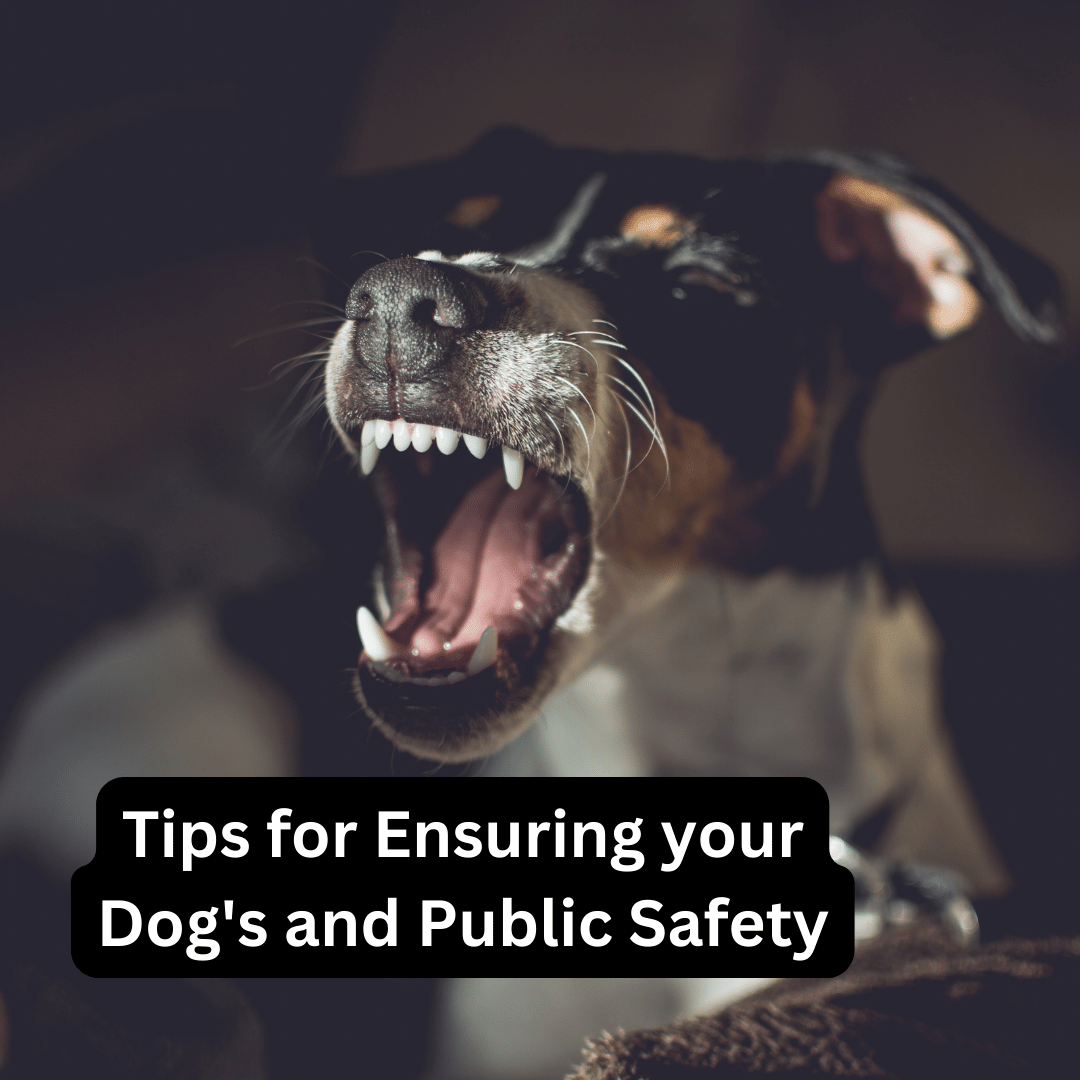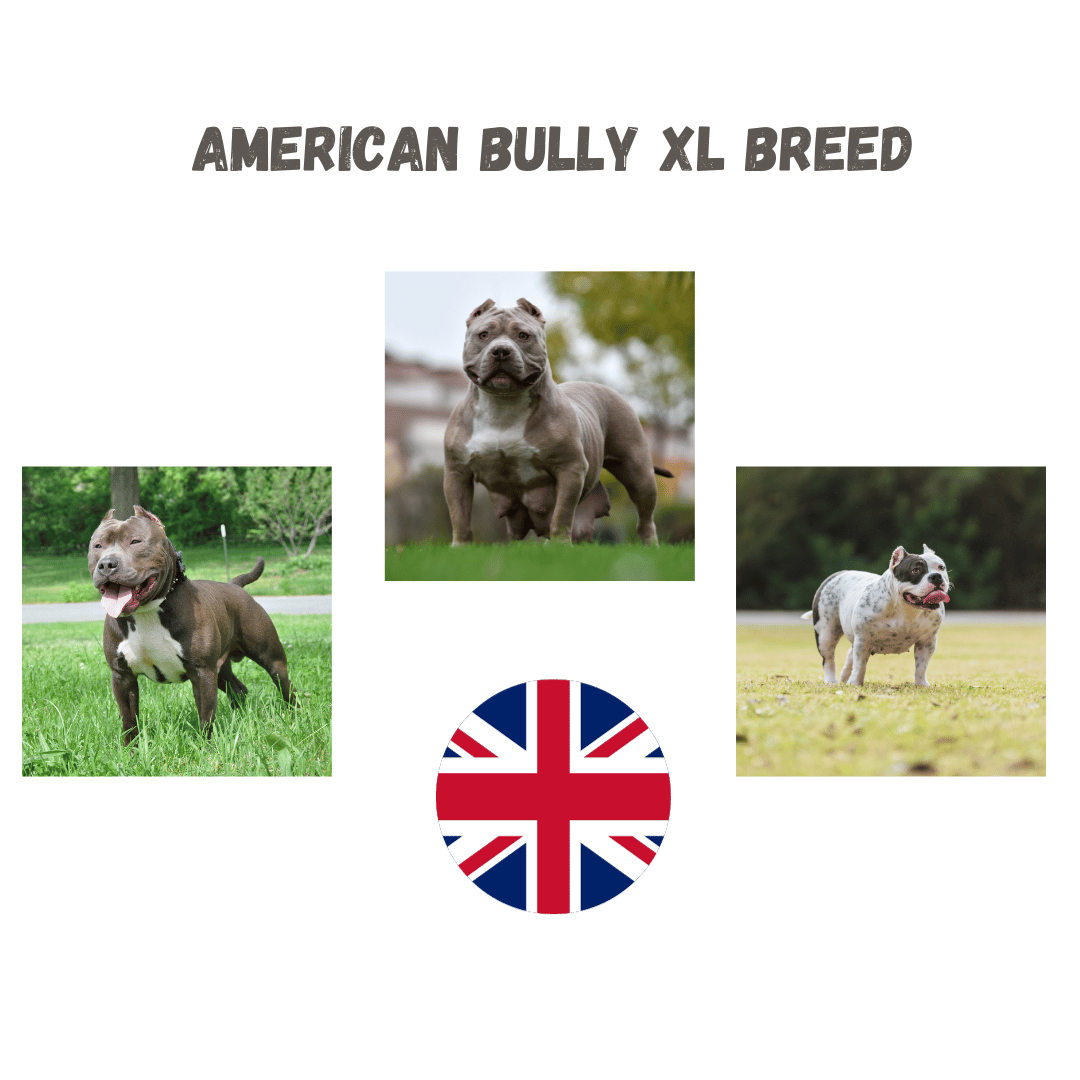Firstly if the wound is old, deep, infected or more than an inch wide, you must seek veterinary assistance. Don’t try treating it at home without first checking with a professional. The injury may need stitching professionally or antibiotics for the infection.
Hydrogen peroxide has too many risk factors to use on a dog’s open wound safely. The risks of using hydrogen peroxide on a dog’s skin are damaging the surrounding tissue, delaying healing and bleach burn. Both would be a disaster if they made your dog’s wound worse. Instead, use lukewarm water or a saline mix for minor cuts.
Hydrogen Peroxide Risk
Hydrogen peroxide can damage the surrounding tissue of a dog’s injury, making it harder to heal and possibly leading to an infection.
Bleach Burn is yet another risk of using Hydrogen peroxide, which is extremely painful to a dog. Bleach burn will cause redness and swelling and will start to blister. This risk to an already open wound would be terrible.
There are generally two strengths of hydrogen peroxide, one being industrial-strength and the other being household. Both will delay healing and will be unsafe for a dog.
Instead, Do This!
Lukewarm water to rinse the wound is much safer for minor injuries. You can also add salt to the lukewarm water, thus creating a saline rinse.
How To Make Up A Saline Rinse At Home
A teaspoon of table salt is added to 1 litre of lukewarm water. Mix it and make sure that the salt has entity dissolved.
A Dogs Immune System Should Tackle Minor Wounds
If there is no debris, then most small wounds on a dog will heal by themselves. That is the whole point of an immune system. It protects and expels harmful bacteria from a dog’s body. It would be even better to help with the healing process if the immune system works at its optimum level.
Optimal Level Immune System
It is achievable by providing good healthy food to a dog. If a dog is given non-nutritional food, the immune system will struggle to keep up and will not have the best armour to tackle essential healing.
If you are concerned that your dog isn’t getting the best food available, read my educational articles on essential nutrients. These will help you in your quest to understand and get your dog’s immune system working at its very best.
Or you can get my book, its cram packed with all the information you need to get your dog’s best armour on!
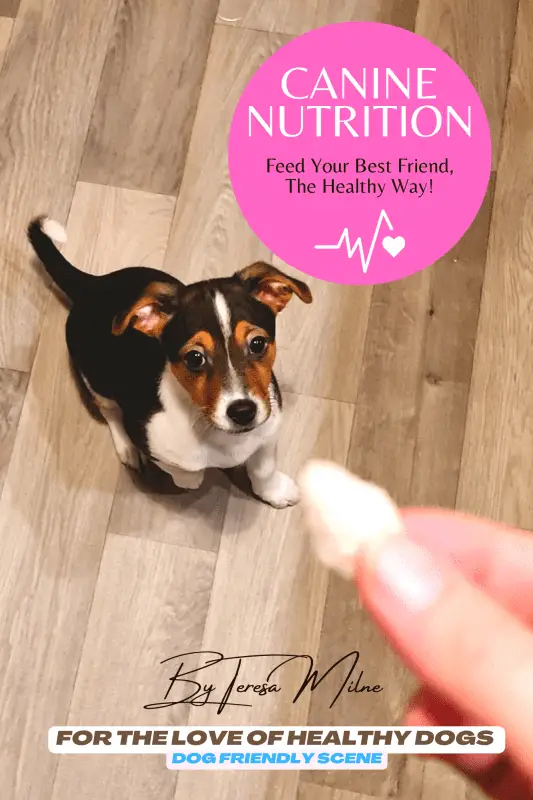
Get My Book!
Author: Teresa Milne
Cram-Packed With Information That Matters
Want to know more about dogs and how to look after them nutritionally? If so, I have written a book of my top and most important advice for any dog owner, whether you are new to dog parenting or an existing one. My book will arm you with the tools of knowledge so you can make the best choices for your dog’s health.
The ultimate aim is healthy, happy dogs that live longer with their owners!
- 118 pages long and 43 chapters
- Release date: July 2022
- Written by Canine Nutritionist Educator
- A proud dog mum
Available to buy on Amazon
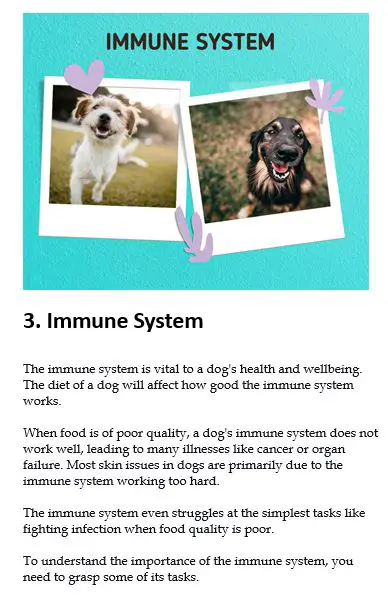
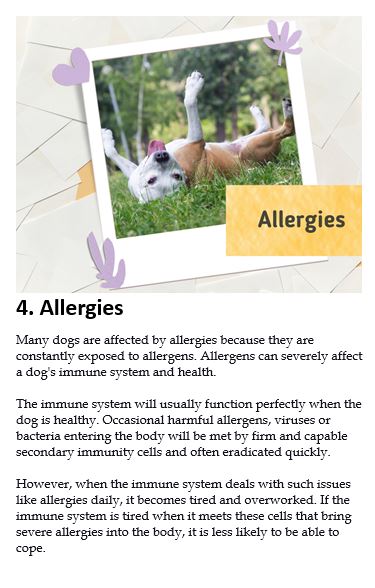
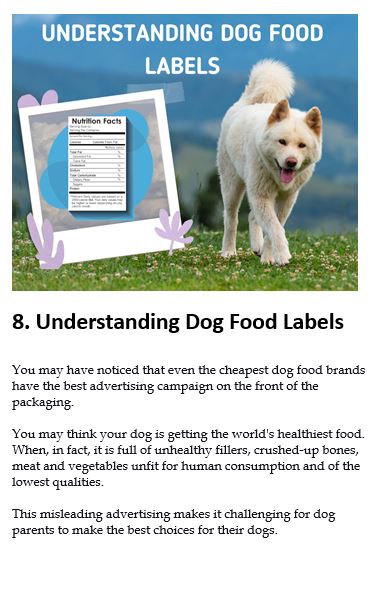
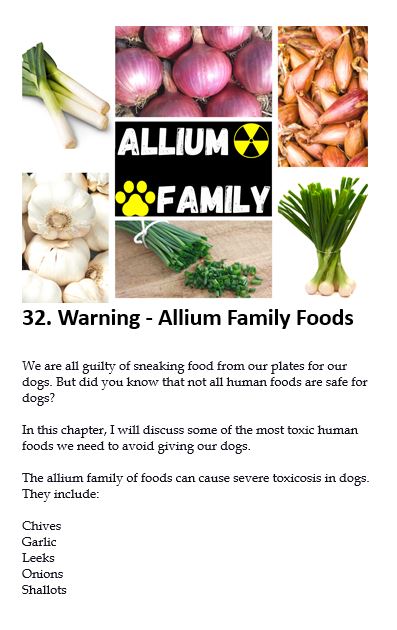
The healing process starts from the moment of injury. New skin will begin to form roughly two days after. You should find that a minor wound should take about ten days to fully heal—any longer than you must seek professional help.
Luke warm water is considered the safest option, also adding a small amount of salt to create a saline mixture. Roughly one teaspoon of salt per one litre of lukewarm water. Do not use harsh chemicals, like alcohol, or hydrogen peroxide, as these damage the skin cells and tissue and cause a delay in the healing process.
Help A Dogs Wound Heal
- Keep the area of the wound clean.
- Apply a safe, natural antiseptic healing cream or spray made for dogs.
- Do not let your dog swim in lakes, rivers or the sea.
- Keep their bed area clean.
- Give them nutritious food to improve their immune system.
- Discourage your dog from licking the wound.
If commands dont work, try using a comfy collar like the ones below. It will stop your dog from reaching the wound whilst it heals.

Antiseptic Cream Made Specifically For Dogs
I am introducing an antiseptic cream alternative specially formulated for dogs that can be safely used for extended periods. Unlike other dog creams, this cream has a pleasant scent. I now keep a jar of this cream in my cabinet for my dogs’ long-term skin care needs.
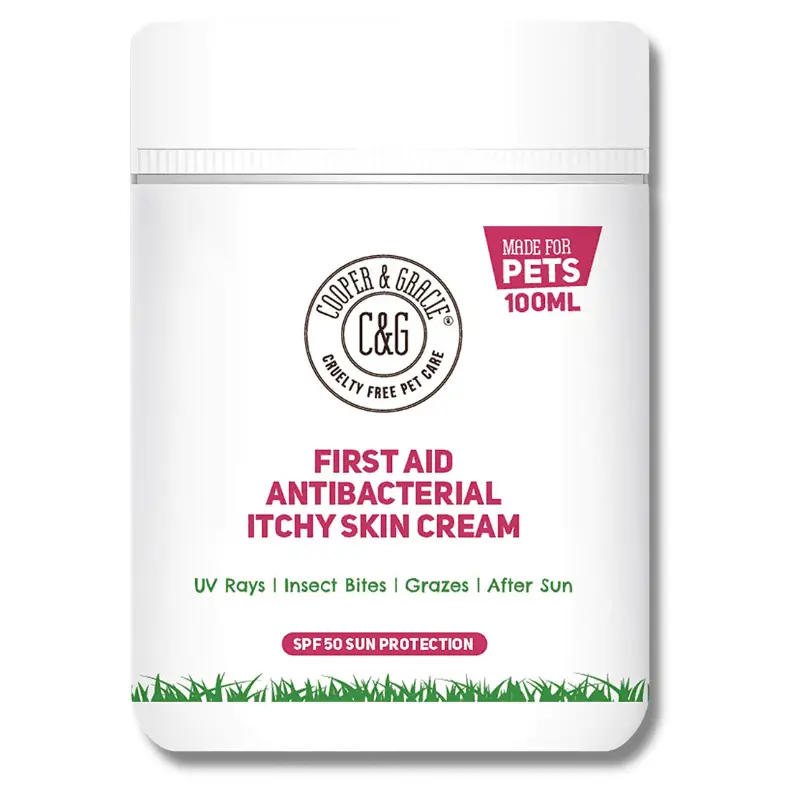
C&G PETS | FIRST-AID ANTIBACTERIAL ITCHY SKIN CREAM WITH SPF 50 | 100% NATURAL ESSENTIAL OIL | MAINTAINS CRACKED ITCHY SKIN | LICK-SAFE NON-TOXIC NON-IRRITANT |HIGHLY ABSORBENT SUN CREAM FOR DOGS 100ML.
Key Points
Do not use hydrogen peroxide; too many risks outweigh the benefits.
Seek veterinary assistance for the below wound types:
- Old wounds that won’t heal
- Deep wounds
- Infected wounds
- More than an inch wide
Safer Option: use lukewarm water or a saline rinse for minor wounds.
